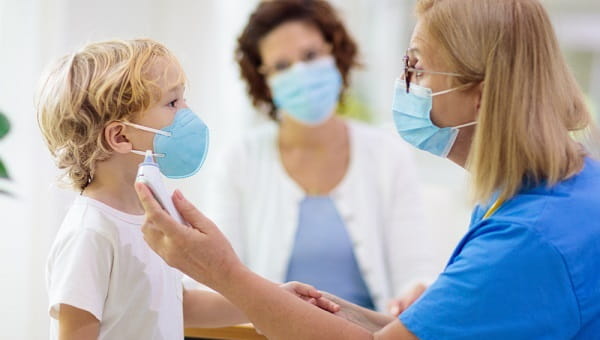School is about to begin again. Back to school means new pencils, fresh notebooks, a new lunch box and a wellness checkup and review of your vaccine history to make sure your child is protected from illness. Immunizations are designed to stimulate the immune system to produce antibodies, just as if you were exposed to the actual disease. Your immune system stands ready to immediately react to these bacterium viruses to prevent your body from getting the illness that you are vaccinated against.
Vaccines contain proteins from these germs that allow your immune system to recognize the germ as an invader.
There are several types of vaccines administered today. One vaccine type is an attenuated live virus, which contains a live virus that’s been weakened during the manufacturing process. Another vaccine type is an inactivated virus, which contains a virus that’s been killed so that it doesn’t cause disease. Other types include proteins, which are only a portion of the disease causing bacteria, such as those used in tetanus or diphtheria vaccines or a recombinant, which is genetically engineered.
According to the Food and Drug Administration, vaccines have contributed to an overall reduction in childhood illnesses as well as less severe illness. Vaccines for diseases such as polio and smallpox have also contributed to the elimination of such diseases in the United States.
Here are the recommended vaccines given to school-aged children:
- Diphtheria and tetanus toxoids and acellular pertussis – This vaccination is a five-dose series given beginning at 2 months and ending with a final dose after age four. An additional booster (Tdap) is required after age 11, which slightly differs from the original vaccine.
- Polio – The inactivated poliovirus vaccine is a four-dose series given at 2, 4, 6 to 18 months, and age 4.
- Varicella (Chickenpox vaccine) - This vaccine is a two dose series. The first dose is given at 12-15 month with a booster at age 4. This vaccine has no indications to be given earlier.
- Flu - The flu, or influenza, is an annual vaccine. This vaccine is available via shot or nasal administration. For children between the ages of 6 and 8 who haven’t received the vaccine before get two doses. Children age 9 and above should receive one dose. Flu season is typically between October and May. There’s a possibility for some mild side effects, such as aches, low grade fever and nausea.
- Measles, mumps, rubella – The MMR vaccine is recommended for all school-aged children. This is a two-dose series given at 12 to 15 months, and a booster after age four. It’s recommended that infants ages 6-11 months who are traveling outside the U.S. be given one dose, and revaccinated with the two-dose series upon arrival back in the U.S. Children age 1 and older who are traveling outside the U.S. should have the full two-dose series.
- Human papillomavirus – The HPV vaccine is a two-dose series. The vaccination series can start at age 9 and there are 6 to 12 months between doses. If you start the schedule at age 15, you’ll follow a two-dose schedule, with at least five months between doses. If you start after age 15 or have increased risk of infection, there’s a three-dose schedule with minimum intervals of four weeks between the first and second doses, and 12 weeks between the second and third doses, with at least a minimum of five months between the first and third. This vaccine prevents against cancer in males and females. Learn more about the HPV vaccine.
- Meningococcal - This vaccine is recommended for children ages 11 to 12 and should be followed up with a booster five years later. This vaccine may help prevent your child from contracting meningitis. An additional vaccine for type B is recommended before college. Learn more about meningococcal.
Based on your child’s age and medical history, recommendations may vary. You should review the vaccine information sheets and talk to your pediatrician about the benefits and risks of all vaccines. Dr. Kristine Rietsma talks about the facts vs. fiction when it comes to the safety of childhood vaccines in her BayCare HealthChat podcast.
If you don’t have a pediatrician or need a physician referral, call 1-800-BayCare.




